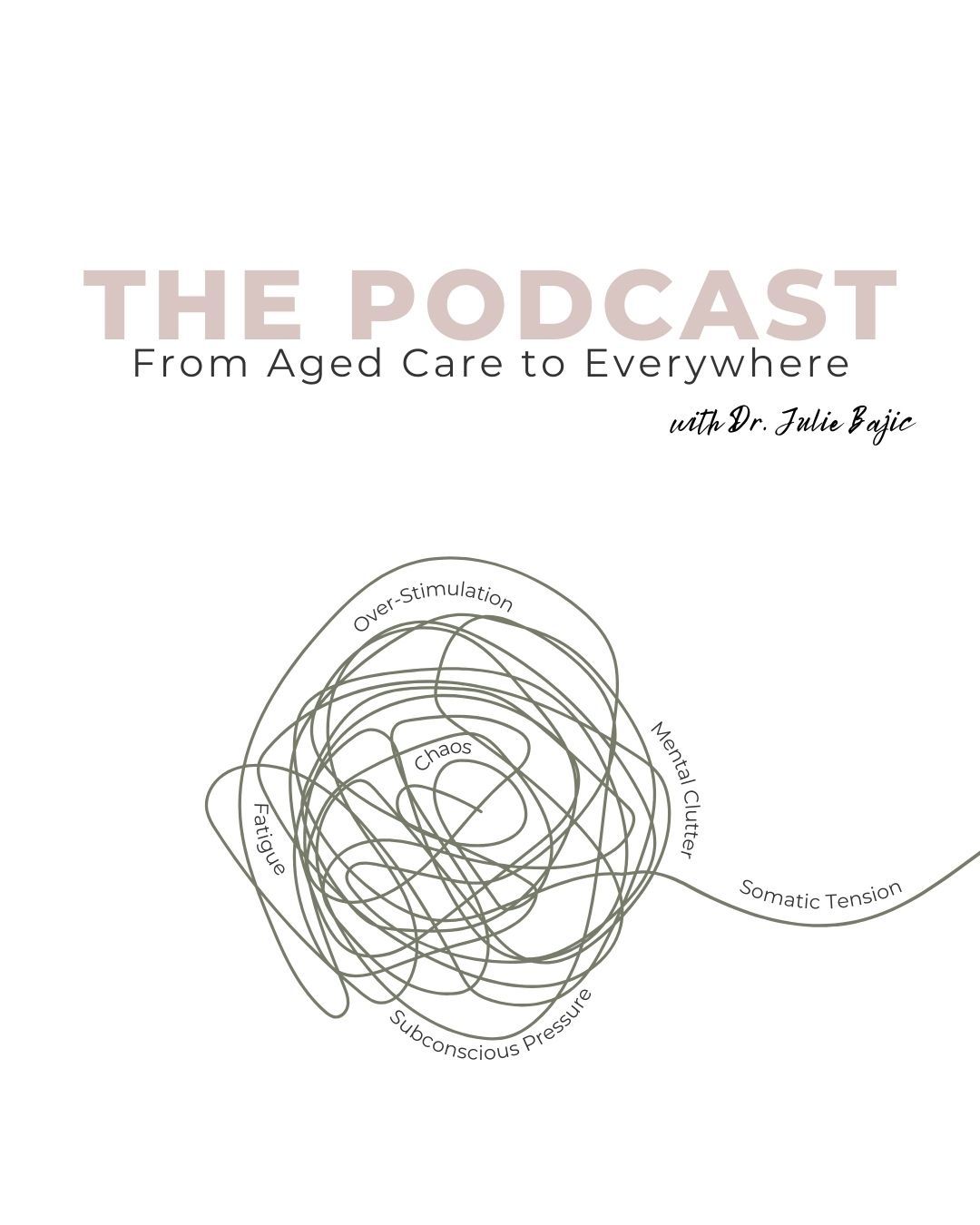
Podcast: From Aged Care to Everywhere
From Aged Care to Everywhere is a podcast for the quiet champions of change – the people who support others while navigating their own transitions, identity shifts and emotional load. Whether you work in aged care, disability, community services, corporate wellbeing, or you’re simply moving through a season of change in your own life, this space is for you.
Hosted by psychologist and workplace wellbeing strategist Dr Julie Bajic Smith, the podcast explores the human side of transition: burnout, boundaries, reinvention, emotional residue, and the moments that reshape who we are.
Each episode offers grounded insight, practical tools and honest conversations that honour the emotional labour behind meaningful work. If you’ve ever wondered, ‘How do I keep showing up when everything is shifting?’, you’ll find clarity, steadiness and a sense of companionship here.
Conversations on the human experience – navigating burnout, transitions and emotional safety with heart.
We are experiencing new challenges in aged care post COVID - 19 pandemic. Workforce is self - reporting poor work/life balance, high levels of stress and additional work pres sures meeting the increasing demands of our diverse ageing population .
Join us for a conversation on these new trends.
Subscribe now to find out when as soon as a new episode is released
Whether you are seeking inspirational stories, insider knowledge, practical tips, real experiences or easy to understand and implement knowledge - you are bound to find useful information.
So You Work in Aged Care offers information on new industry trends, topics of interest and tips and tricks on improving service delivery without complexity and overwhelm .
Subscribe to the podcast on your favourite podcast site
🔍 Looking for a past episode?
Search the archives by typing in your search term below.

